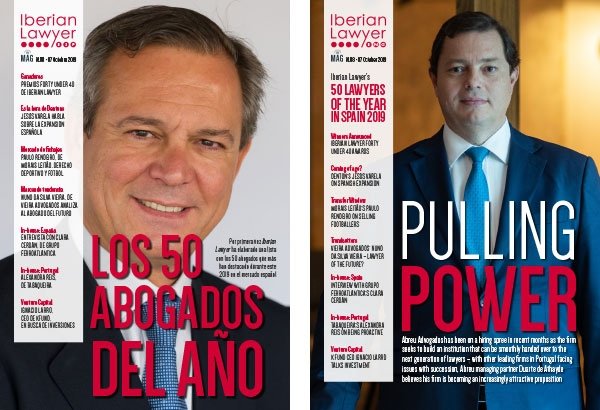The non-habitual tax resident regime – amendment to the list of high value-added activities
A Government Ruling has recently amended the list of high value-added activities that are relevant for the non-habitual tax resident regime.
This amendment will enter into force on 1 January 2020 and aims to strengthen the bid for highly skilled labor force.
The non-habitual tax resident regime will remain as a powerful argument when hiring directors, engineers and other experts in the computer science field, that are not based in Portugal.
The Government Ruling published on 23 July 2019 amended the list of high value-added activities eligible for the 20% Personal Income Tax flat rate applicable to income derived from employment and/or business and professional activities, received by non-habitual tax resident (“NHR”) individuals.
Bearing in mind that this regime was introduced in 2009 and that the high value-added activities list was published in 2010, the Government considered that this activities list urged to be updated and adapted to the current economic circumstances. In any case, this amendment should be interpreted as a clear sign to the economic agents that Portugal recognizes the NHR regime as a relevant instrument to attract investment and talent.
In this context, the Government performed an extensive revision of the high value-added activities list, aiming to focus its scope in activities deemed as relevant for the Portuguese economy.
Therefore, the new high value-added activities list has excluded from its scope some professionals, including, among others, psychologists, architects, auditors and tax advisors.
However, the new list’s scope became more comprehensive (or at least clearer) regarding activities that could already be covered by this regime (professionals acting as managing/executive directors, as well as administrative and commercial services directors).
In contrast, the new high value-added activities list added those related to the agriculture, livestock, construction and manufacturing industries.
The new list is based on the Portuguese Classification of Professions, which is less ambiguous than the previous methodology.
It should be also highlighted that the Government Ruling introduced a new requirement to the NHR regime: professional qualification or professional experience.
Thus, under the new activities’ list, a NHR that develops a high value-added activity may be required to: (a) hold, at least, level 4 of qualification of the European Qualifications Framework; (b) hold, at least, level 35 of the International Classification Type of Education; or (c) have five years of professional experience.
Notwithstanding, this new requirement will not prevent or impact in the application for this regime by individuals settling in Portugal that mainly obtain passive income (e.g. pension income), since this requirement is only applicable to NHR that perform a high value-added activity.
This amendment will enter into force on 1 January 2020, without detriment to the situations foreseen in the transitional regime.
According to the transitional regime, the new list of high value-added activities will not be applicable to individuals that: (a) were registered as NHR until 1 January 2020, even if their statute is suspended; (b) have already requested the NHR statute, even if the respective registry is pending, and/or the ones that should request their registration as NHR until 31 March 2020, by reference to the year 2019. However, the new list may be applicable – upon their request – to NHR excluded from its scope.
In light of the above-mentioned amendment, companies based in Portugal with a strong demand for developers, software engineers and other experts in the computer science field, will continue (indirectly benefiting and) promoting the non-habitual tax resident regime to its (potential) employees.
The same is true for multinational companies that have international mobility schemes put in place for its management and directors.
Despite of this amendment, one cannot say that the stability and legal certainty of this tax regime in endangered, since its main characteristics, as well as target beneficiaries, remain intact.
Considering that the main goal of this amendment is to clarify the scope of this tax regime, we understand that it should be particularly well received both by individuals and businesses.
However, we believe that this regime should be reviewed in the near future, in order to soften deadlines, speed up and standardize the tax authorities’ procedures.
In a nutshell, the NHR regime remains as a “must-have” for expatriates that may consider Portugal as a destiny to live and work.
António Brochado Teixeira, Tax Associate at pbbr. He can be reached at antonio.teixeira@pbbr.pt.












